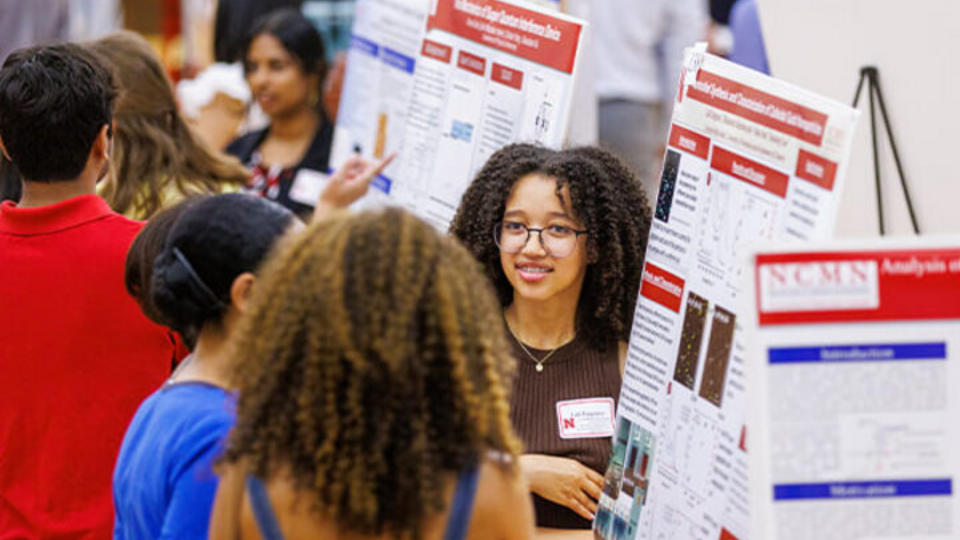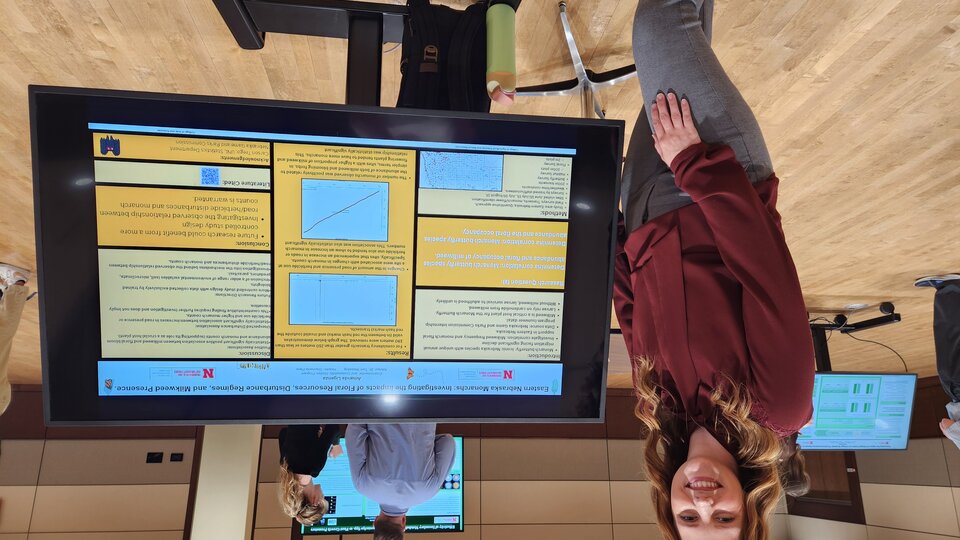Important research contributions come from CASNR every year to improve agriculture, food industries, environment, well-being of families and community development. CASNR students at both the undergraduate and graduate level have the opportunity to work with world-renowned faculty on cutting-edge research projects that can lead to innovations in food, fuel, fiber, energy, water and more!
Research Spotlights
Marcus Cureton - Forensic Toxicology
The McNair Scholars Program aims to increase the number of underrepresented students in doctoral programs.
Marcus Cureton graduated in May 2025 with a Bachelor's Degree in Forensic Science. While at UNL, he participated in research as part of the McNair Scholars Program.
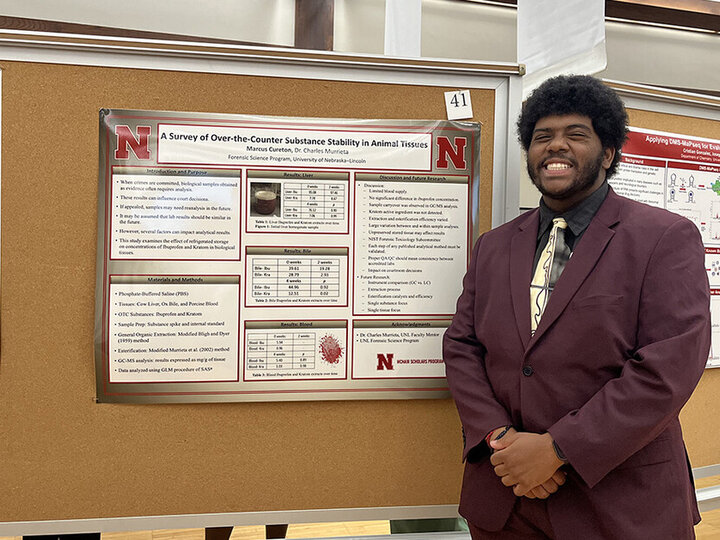
Claire Snodgrass - Plant Pathology
The Department of Plant Pathology has a strong commitment to fundamental and applied research to advance our understanding of global challenges associated with sustainable plant productivity in the presence of plant pathogens and microbial communities.
Claire Snodgrass is a May 2025 graduate with a Bachelor's Degree in Microbiology. She discovered a passion for research by working in a plant pathology lab. She has been admitted to a PhD program in immunology, pathology and infectious diseases.
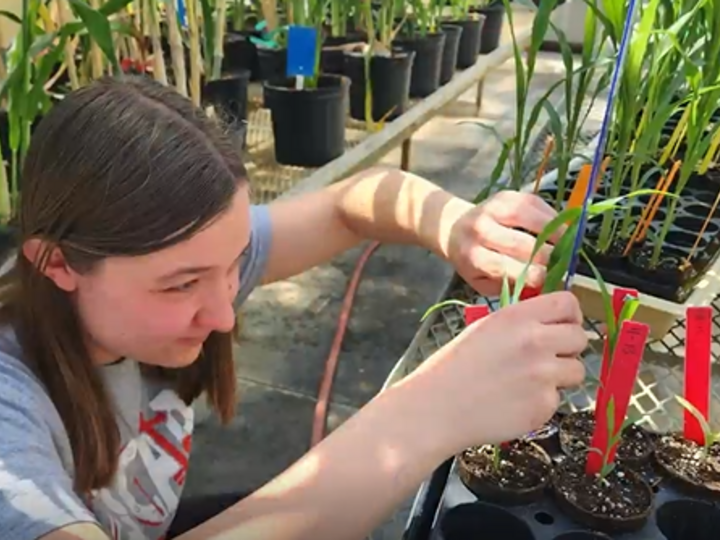
Maya Tanikawa-Brown - Food Sustainability
The Undergraduate Creative Activities and Research Experience (UCARE) program is a paid opportunity to work alongside a world-class UNL faculty mentor and conduct cutting-edge research that will shape the future of Nebraska and beyond.
Maya Tanikawa-Brown graduated in May 2025 with a Bachelor's Degree in Food Science and Technology. While at UNL, she participated in various research projects including a project that studied student perceptions of food sustainability in to-go dining. She conducted this research project as part of the UCARE (Undergraduate Creative Activity and Research Experience) program.
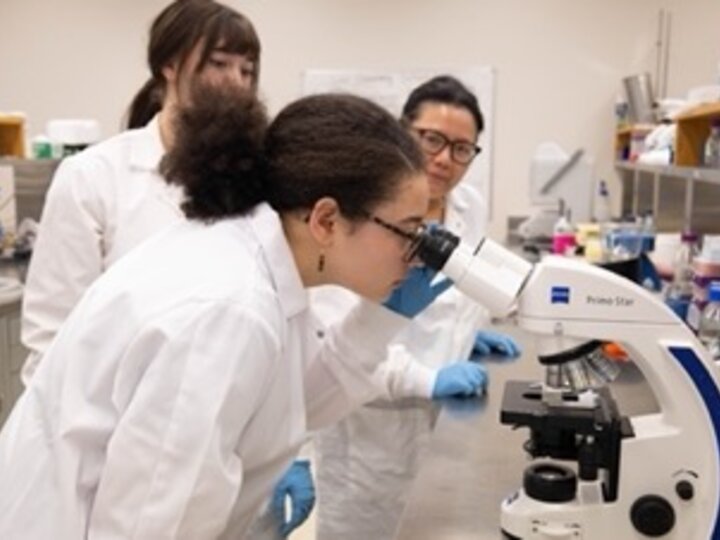
Lauren Wilson - Plant Diagnostics
The Plant and Pest Diagnostic Clinic provides plant diagnostic support for Nebraskans and to the county and area extension personnel.
Lauren Wilson graduated in May 2025 with a Bachelor's Degree in Plant and Landscape Systems and a minor in Plant Pathology. Following a career in professional dance, she discovered a passion for science and plans to pursue graduate education to study crop bioengineering for disease resistance and abiotic stress tolerance.
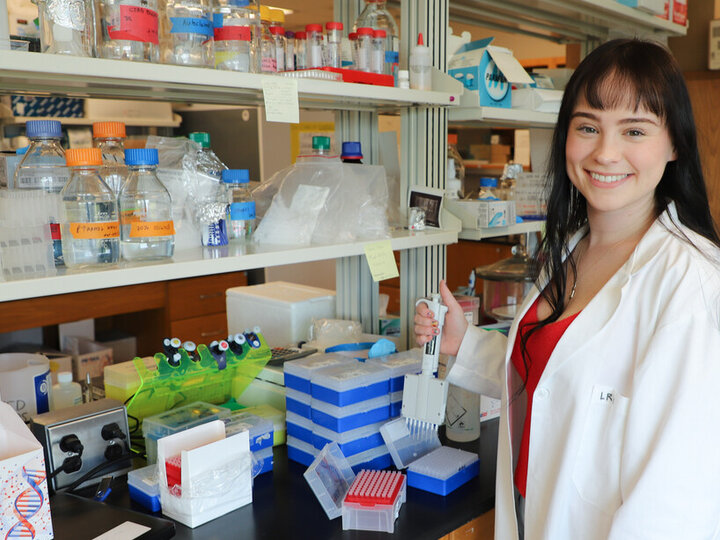
Benefits of Research
In a survey by the National Association of Colleges and Employers, 85.5% of employers rated problem-solving as either very important or extremely important for college graduates to have to enter the workforce and 78.6% rated analytical/quantitative skills as either very important or extremely important (Job Outlook 2022). In addition to gaining important job skills, other benefits of research include:
- Honing communication skills through poster presentations, conference presentations, and writing scholarly articles, papers, and theses.
- Helping faculty create new knowledge.
- Preparing for graduate school by demonstrating that you value the significance of and know how to conduct research, and can manage your coursework with the additional obligations of research.
- Develop a professional network of mentors by getting to know faculty and graduate students who could potentially serve as references for a job or graduate/professional school.
- The potential to earn academic credit. Discuss this with your academic advisor to make sure you understand if you need academic credit and how it would apply toward your degree.
- The possibility of graduating with distinction.
How to Get Involved
If you are interested in getting involved in research, there are many ways to learn about available opportunities:
- Schedule an appointment with your academic advisor and/or a CASNR career coach to discuss your interests and career goals and ask for recommendations of faculty to contact. You can schedule an appointment via the Student Success Hub. Your academic advisor and career coach will be listed under your Success Team.
- Explore the websites of department research labs to find a research area in which you are interested:
Agricultural Leadership, Education and Communication
Agricultural/Biological Systems Engineering
Veterinary Medicine and Biomedical Sciences
- Meet with your current and former faculty to learn about their research, discuss your research interests, and ask for advice on how to get involved.
- Check out the Nebraska Summer Research Program. This intensive summer research experience provides mentoring and research experiences while allowing scholars to preview graduate school life. Students with a strong interest in graduate programs are encouraged to apply, as are those from populations traditionally underrepresented in graduate education.
- Search Handshake for research opportunities with faculty.
- Research experiences may be paid or unpaid. UNL offers several research funding programs for research such as UCARE, the Agricultural Research Division and much more! The Cabela’s Apprenticeship Research Program provides funding for research centered around natural resources issues.
Develop Your Research Skills
Use MyRed to select a course that satisfies UNL's Experiential Learning (EL) requirement. Your academic advisor can assist you in finding an EL course with a focus on gaining skills through research.
Support for Your Journey
We are here to help you discover your path to success!
